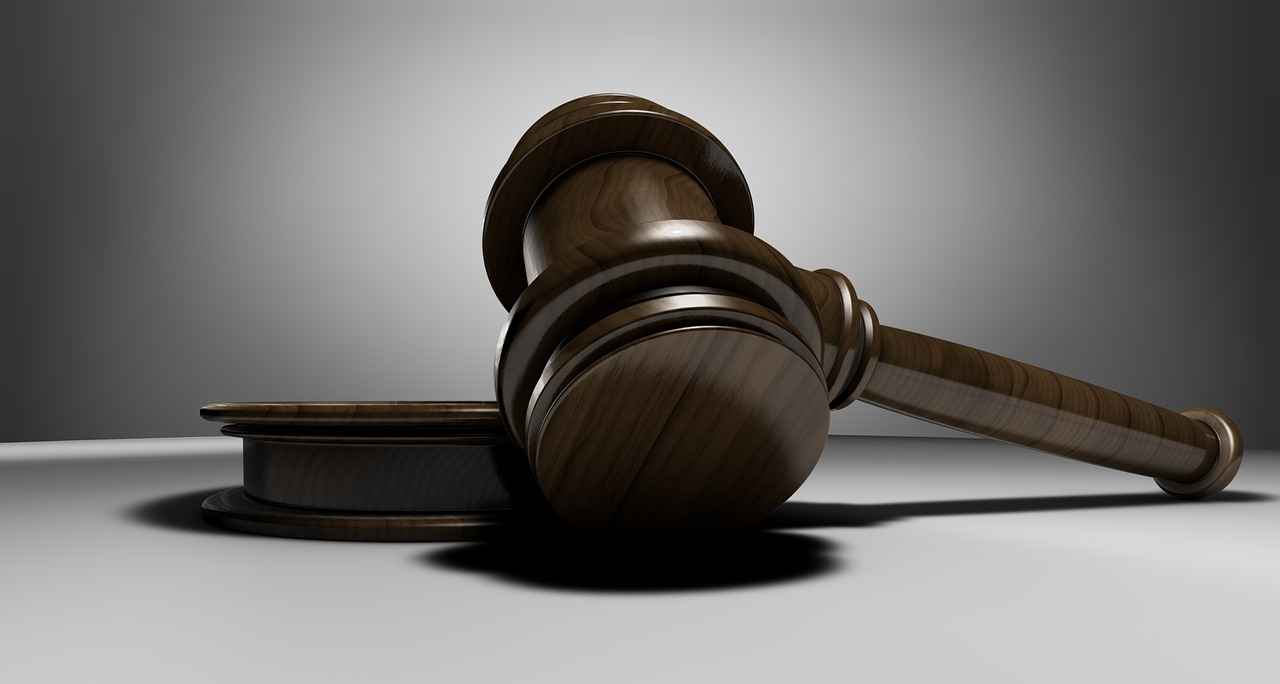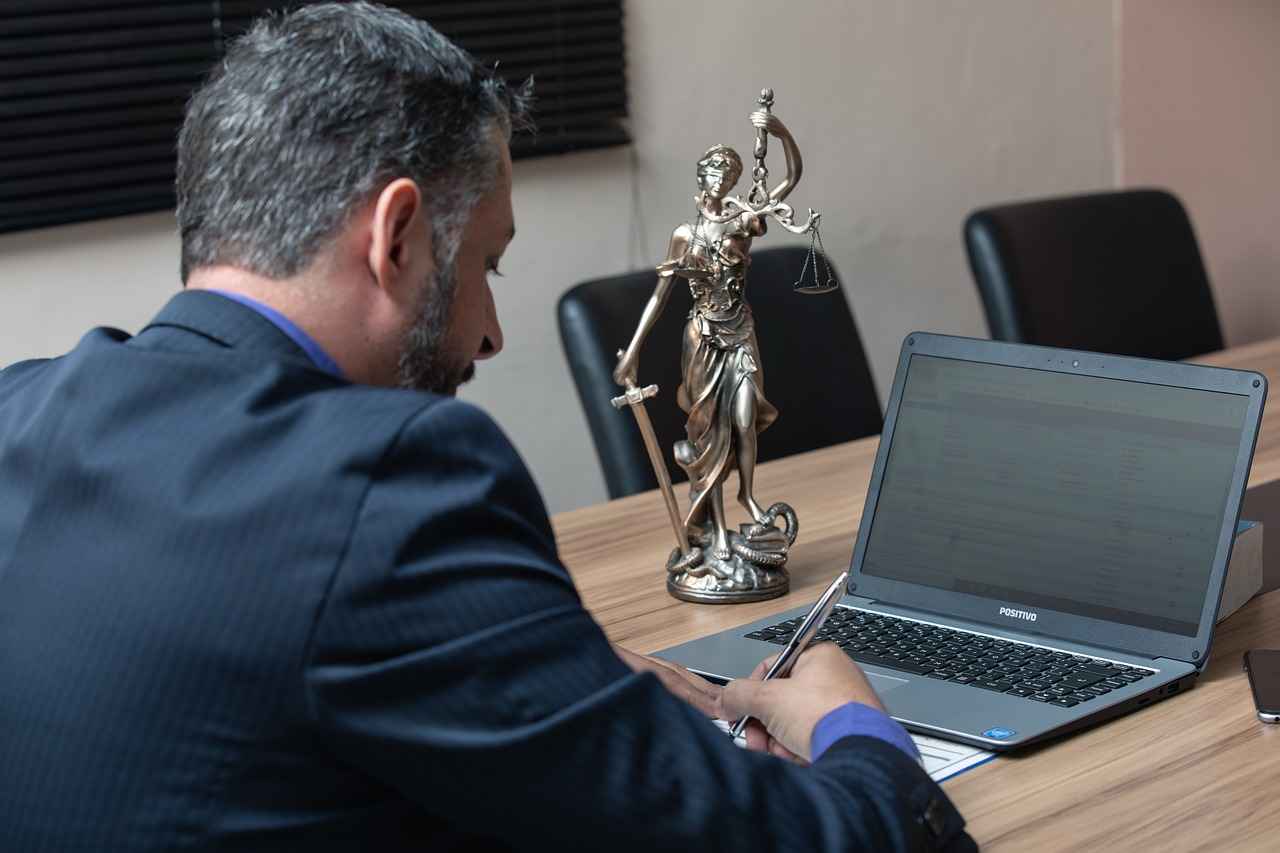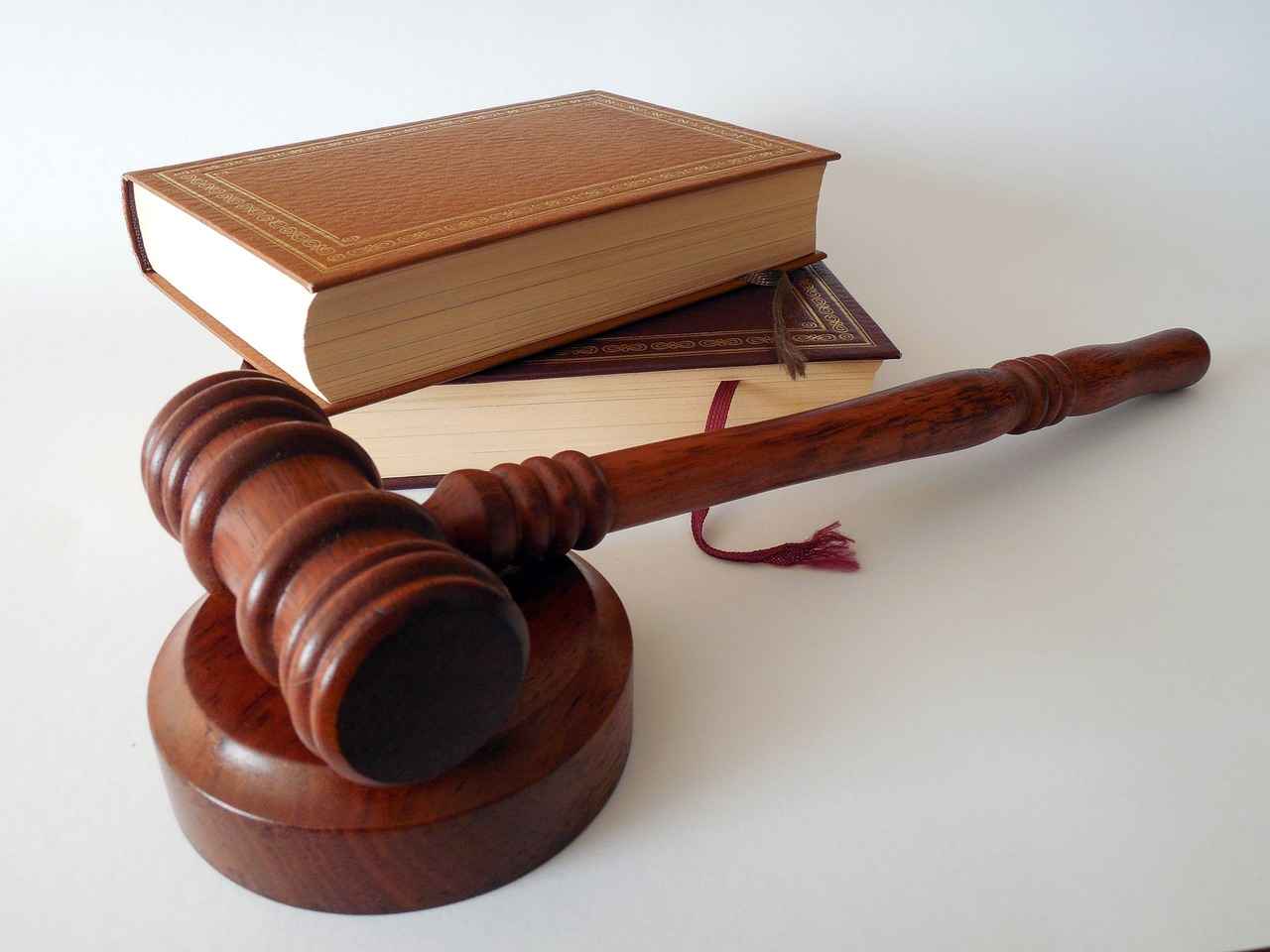This article delves into the common legal cases encountered in the U.S. and provides essential guidance on locating qualified attorneys in San Antonio. Making informed decisions about your legal representation is crucial for achieving favorable outcomes in your legal matters.
Understanding Personal Injury Cases
Personal injury cases arise when individuals suffer harm due to another’s negligence. It’s essential to understand the nuances of this area, as it can significantly impact your case’s outcome. Look for attorneys with a strong track record in personal injury law, who can effectively advocate for your rights.
Medical Malpractice: What to Know
Medical malpractice involves negligence by healthcare professionals. To select an attorney specializing in this complex field, verify their experience and success rate in handling similar cases. A knowledgeable lawyer can help navigate the intricacies of medical law.
Breach of Contract: Legal Implications
Breach of contract cases occur when one party fails to uphold their end of an agreement. An attorney with expertise in contract law can help you understand your rights and seek appropriate remedies.
Property Disputes: Navigating Ownership Issues
Property disputes can arise from ownership claims or boundary issues. Choosing an attorney experienced in real estate law is crucial for effective resolution. Look for someone familiar with local property laws and regulations.
Landlord-Tenant Disputes: Rights and Responsibilities
Disputes between landlords and tenants often involve lease agreements and property conditions. Finding a lawyer who understands tenant rights can greatly benefit your case. Ensure they are well-versed in local housing laws.
Defamation: Understanding Libel and Slander
Defamation cases involve false statements harming someone’s reputation. An attorney skilled in media law can provide essential guidance in these sensitive matters. Look for professionals with a proven record in handling defamation cases.
Employment Disputes: Know Your Rights
Employment disputes can arise from wrongful termination or discrimination. An attorney with expertise in labor law can help protect your rights as an employee. Seek out lawyers who have successfully represented clients in employment-related cases.
Product Liability: Holding Manufacturers Accountable
Product liability cases hold manufacturers responsible for defective products. Finding a lawyer with experience in consumer protection law is vital for a successful claim. Consider their history of winning similar cases when making your choice.
Wrongful Death: Seeking Justice
Wrongful death cases arise when negligence leads to a person’s death. An attorney with experience in these emotionally charged cases can help families seek justice. Look for compassionate lawyers who understand the sensitive nature of these matters.
Class Action Lawsuits: Collective Action
Class action lawsuits allow individuals to sue on behalf of a group. An attorney experienced in mass torts can guide you through this complex legal process. Ensure they have successfully handled class action suits in the past.
Assault and Battery: Legal Definitions
Assault and battery cases involve intentional harm. Understanding the legal definitions and nuances can help you select a qualified attorney for your defense or prosecution. Look for lawyers with a strong background in criminal law.
Drug Offenses: Navigating Criminal Charges
Drug offenses can range from possession to trafficking. A criminal defense attorney with experience in drug cases is essential for navigating the legal system effectively. Seek lawyers who have a successful track record in drug-related defenses.
Theft and Burglary: Understanding Your Charges
Theft and burglary charges can have serious consequences. An experienced attorney can help you understand your rights and potential defenses. Look for professionals who specialize in criminal defense.
Fraud and Embezzlement: Legal Consequences
Fraud and embezzlement cases involve deceit for financial gain. A lawyer specializing in white-collar crime is crucial for navigating these complex legal waters. Ensure they have experience handling similar cases.
Murder and Homicide: Defense Strategies
Murder and homicide cases require a robust defense strategy. Finding a seasoned criminal defense attorney is essential for protecting your rights in such serious matters. Look for lawyers with extensive experience in high-stakes criminal cases.
DUI/DWI: Consequences and Defenses
DUI/DWI charges can lead to severe penalties. An attorney experienced in driving offenses can help mitigate consequences and explore available defenses. Seek out lawyers who focus on DUI/DWI cases.
Domestic Violence: Legal Protections
Domestic violence cases involve serious accusations and legal protections. An attorney familiar with family law and criminal defense can provide essential support and guidance. Look for professionals who understand the sensitive nature of these cases.
Finding Qualified Attorneys
When searching for legal representation in San Antonio or any major metropolitan area, consider the following methods:
- Utilize online legal directories like Avvo or FindLaw to browse attorney profiles and reviews.
- Check state bar association websites for verified attorneys and their specialties.
- Ask for referrals from friends, family, or other professionals.
- Schedule initial consultations to gauge compatibility and expertise.
Look for credentials such as board certifications, years of experience, and successful case outcomes. Be wary of red flags, including lack of communication, high-pressure sales tactics, or poor reviews.

Understanding Personal Injury Cases
Personal injury cases are a significant aspect of the legal landscape in the United States. These cases arise when individuals suffer harm due to the negligence of another party, whether that be an individual, a business, or an organization. The harm can manifest in various forms, including physical injuries, emotional distress, or financial loss. Understanding the intricacies of personal injury law is crucial for anyone seeking to pursue a claim.
To navigate this complex field effectively, individuals must first grasp the fundamental concepts. A personal injury claim typically involves proving that the other party’s negligence directly caused the injury. This often requires gathering substantial evidence, including witness statements, medical records, and sometimes expert testimonies. Therefore, having a knowledgeable attorney who specializes in personal injury law is vital.
When searching for a personal injury lawyer, consider the following practical steps:
- Research Credentials: Look for attorneys with specific experience in personal injury cases. Check their education, years of practice, and any relevant certifications.
- Read Reviews: Online reviews and testimonials can provide insights into an attorney’s reputation and success rate. Websites like Avvo and Martindale-Hubbell can be useful resources.
- Consultation Meetings: Many personal injury attorneys offer free consultations. Use this opportunity to ask questions about their experience, approach, and fees.
- Contingency Fees: Most personal injury lawyers work on a contingency fee basis, meaning they only get paid if you win your case. Ensure you understand their fee structure before proceeding.
Additionally, be wary of red flags such as:
- High Pressure Tactics: If an attorney pressures you to sign a contract or rushes you into making decisions, consider it a warning sign.
- Lack of Communication: An attorney should be responsive and communicative. If you struggle to get in touch, it may indicate potential issues down the line.
- Unrealistic Promises: Be cautious of lawyers who guarantee specific outcomes. Legal cases are inherently unpredictable, and no attorney can assure a win.
In major metropolitan areas such as New York City, Los Angeles, and Chicago, the competition among personal injury lawyers can be fierce. Utilize local bar associations and legal aid organizations to find reputable attorneys. Networking within your community can also yield valuable recommendations.
Ultimately, selecting the right personal injury attorney can significantly influence the outcome of your case. By conducting thorough research, asking the right questions, and trusting your instincts, you can find a qualified legal professional to guide you through the complexities of personal injury law.

Medical Malpractice: What to Know
Medical malpractice is a critical area of law that addresses the negligence of healthcare professionals, including doctors, nurses, and hospitals. This type of negligence can lead to serious injuries or even death, making it essential for victims to understand their rights and options. Navigating the complexities of medical malpractice requires a deep understanding of both medical and legal standards, which can be overwhelming for those affected.
When pursuing a medical malpractice claim, it is vital to establish that the healthcare provider in question failed to meet the accepted standard of care. This means demonstrating that the provider’s actions or omissions deviated from what a reasonable professional would have done under similar circumstances. Common examples of medical malpractice include surgical errors, misdiagnosis, delayed diagnosis, medication errors, and birth injuries.
Choosing the right attorney to handle a medical malpractice case is crucial for achieving a favorable outcome. Here are several steps to consider when searching for a qualified attorney:
- Look for specialization: Seek attorneys who specialize in medical malpractice law. Their expertise will enable them to understand the nuances of your case and the medical issues involved.
- Check credentials: Verify the attorney’s education, years of experience, and track record in handling medical malpractice cases. A lawyer with a history of successful settlements or verdicts can be a significant asset.
- Read reviews and testimonials: Online reviews can provide insight into an attorney’s reputation and client satisfaction. Websites like Avvo and Martindale-Hubbell are excellent resources for finding credible feedback.
- Consultation: Many attorneys offer free initial consultations. Use this opportunity to ask questions about their experience with cases similar to yours and their approach to handling your claim.
- Contingency fees: Most medical malpractice attorneys work on a contingency fee basis, meaning they only get paid if you win your case. Ensure you understand their fee structure before agreeing to representation.
It is also essential to be aware of potential red flags when hiring a medical malpractice attorney:
- Lack of experience: Be cautious of attorneys who do not have a strong background in medical malpractice law.
- Pressure tactics: Avoid attorneys who pressure you into making quick decisions or signing contracts without giving you time to think.
- Unclear communication: If an attorney is not responsive or fails to communicate clearly, it may indicate a lack of professionalism.
In conclusion, understanding the intricacies of medical malpractice is essential for victims seeking justice. By taking the time to find a qualified attorney who specializes in this field, you can significantly improve your chances of a successful outcome. Remember to conduct thorough research, ask the right questions, and trust your instincts when selecting legal representation.

Breach of Contract: Legal Implications
A breach of contract occurs when one party fails to fulfill their obligations as outlined in a legally binding agreement. This can take many forms, including not delivering goods or services, failing to make payments, or not adhering to the terms set forth in the contract. Understanding the legal implications of a breach is crucial for both individuals and businesses alike.
When faced with a breach of contract, it is essential to seek the assistance of a knowledgeable attorney who specializes in contract law. These legal experts can help navigate the complexities involved in such cases, ensuring that your rights are protected and that you receive the compensation you deserve.
Here are some critical aspects to consider when dealing with breach of contract cases:
- Types of Breaches: Breaches can be classified as minor or material. A minor breach allows for some performance, while a material breach typically results in significant harm and allows the non-breaching party to terminate the contract.
- Damages: The non-breaching party may seek various types of damages, including compensatory damages, consequential damages, and sometimes punitive damages, depending on the circumstances surrounding the breach.
- Legal Remedies: Remedies for breach of contract can include specific performance, where the court orders the breaching party to fulfill their part of the agreement, or monetary compensation for losses incurred.
Finding the right attorney to handle a breach of contract case is essential. Here are some guidelines to ensure you hire a qualified legal professional:
1. **Research Credentials**: Look for attorneys with a strong background in contract law and a track record of successful cases.2. **Seek Referrals**: Ask friends, family, or colleagues for recommendations based on their experiences.3. **Consult Legal Directories**: Websites like Avvo or Martindale-Hubbell provide ratings and reviews of attorneys in your area.4. **Interview Potential Lawyers**: Schedule consultations to discuss your case and gauge their expertise and approach.5. **Check for Red Flags**: Be cautious of attorneys who promise guaranteed outcomes or have numerous complaints against them.
In major metropolitan areas such as New York City, Los Angeles, and Chicago, the competition among legal professionals is fierce. Therefore, it is crucial to take the time to research and select an attorney who not only specializes in breach of contract cases but also has a solid reputation within the community.
By following these steps, you can ensure that you find a qualified attorney who will advocate for your rights and help you navigate the complexities of breach of contract cases effectively. Remember, the right legal representation can make all the difference in achieving a favorable outcome.

Property Disputes: Navigating Ownership Issues
Property disputes can be complex and emotionally charged, often arising from ownership claims or boundary issues. Whether you are facing a disagreement with a neighbor over property lines or a conflict regarding the rightful ownership of a piece of real estate, these disputes can escalate quickly if not handled properly. In such cases, selecting an attorney with extensive experience in real estate law is crucial for effective resolution.
When looking for a qualified attorney to handle property disputes, consider the following steps:
- Research Specialization: Look for lawyers who specialize in real estate law. Their knowledge of property disputes will be invaluable in navigating the complexities of your case.
- Check Credentials: Verify the attorney’s educational background, bar association membership, and any relevant certifications. A lawyer with a solid foundation in real estate law is more likely to provide effective representation.
- Experience Matters: Seek out attorneys with a proven track record in handling property disputes. Their experience can provide insights into potential outcomes and strategies tailored to your situation.
- Seek Referrals: Ask friends, family, or colleagues for recommendations. Personal referrals can lead you to trustworthy attorneys who have successfully handled similar cases.
- Initial Consultation: Most attorneys offer a free initial consultation. Use this opportunity to discuss your case, evaluate the attorney’s communication style, and assess their understanding of your specific issues.
- Review Client Testimonials: Look for online reviews and testimonials from previous clients. This feedback can give you an idea of the attorney’s reputation and the level of service they provide.
In addition to these steps, be mindful of potential red flags when selecting an attorney:
- Unclear Fee Structures: Ensure that the attorney provides a clear explanation of their fee structure. Avoid those who are vague about costs or charge exorbitant fees without justification.
- Lack of Communication: If an attorney is difficult to reach or does not respond promptly to your inquiries, this may indicate future communication issues during your case.
- Pressure Tactics: Be wary of attorneys who pressure you into making quick decisions or signing contracts without fully understanding the implications.
Understanding the nuances of property law is essential for both homeowners and prospective buyers. Disputes can arise from misunderstandings regarding property lines, easements, or even zoning laws. Therefore, having a knowledgeable attorney who can advocate on your behalf is vital to achieving a favorable resolution.
In summary, when faced with a property dispute, take the time to find a qualified attorney who specializes in real estate law. By following the outlined steps and being aware of potential red flags, you can navigate the complexities of property disputes more effectively and secure the representation you need to protect your interests.

Landlord-Tenant Disputes: Rights and Responsibilities
Landlord-tenant disputes are a common issue that can arise in rental agreements. These disputes often stem from misunderstandings or disagreements regarding lease agreements and the conditions of the property. It is crucial for both parties to understand their rights and responsibilities to avoid escalating conflicts.
In many cases, disputes may involve issues such as non-payment of rent, property maintenance, eviction processes, or security deposits. For tenants, knowing their rights can provide significant leverage in negotiations or legal proceedings. For instance, tenants are typically entitled to a habitable living environment, which means landlords must ensure that essential services like heating, plumbing, and electrical systems are functioning properly.
On the other hand, landlords have the right to receive timely rent payments and to maintain the property in a manner that protects their investment. When conflicts arise, having a knowledgeable lawyer who specializes in tenant rights can greatly benefit your case. These professionals can help navigate the complexities of local housing laws, ensuring that you are well-informed of your options.
When searching for a qualified attorney, consider the following steps:
- Research Online: Utilize legal directories such as Avvo or FindLaw to find lawyers specializing in landlord-tenant disputes.
- Check Credentials: Look for attorneys with experience in real estate law and tenant rights. Ensure they are licensed to practice in your state.
- Read Reviews: Customer reviews can provide insight into a lawyer’s effectiveness and client satisfaction.
- Consult Local Bar Associations: Many bar associations offer referral services that can connect you with experienced attorneys in your area.
Additionally, be cautious of red flags during your search:
- High Fees: While experienced attorneys may charge more, be wary of those who demand exorbitant fees without a clear explanation of their services.
- Lack of Communication: An attorney should be responsive and transparent about your case. If they are difficult to reach or do not provide clear answers, consider looking elsewhere.
- Unclear Specialization: Ensure that the attorney has a proven track record in landlord-tenant disputes specifically, rather than a general practice.
In conclusion, landlord-tenant disputes can be resolved effectively with the right legal representation. Understanding your rights and responsibilities as either a landlord or tenant is essential. By following these guidelines, you can find a qualified attorney who will advocate for your interests and help navigate the legal landscape surrounding these disputes.

Defamation: Understanding Libel and Slander
Defamation is a legal term that refers to false statements made about an individual or entity that can harm their reputation. In the realm of defamation law, there are two primary forms: libel, which pertains to written statements, and slander, which refers to spoken statements. Both forms can have serious repercussions for the victim, leading to emotional distress, loss of income, and damage to personal and professional relationships.
When dealing with defamation cases, it is crucial to understand the legal framework that governs these claims. In the United States, the burden of proof typically lies with the plaintiff, who must demonstrate that the statement in question was not only false but also made with actual malice—meaning the defendant knew the statement was false or acted with reckless disregard for the truth.
Given the complexities involved in defamation cases, seeking the counsel of an attorney who specializes in media law or defamation is essential. Such attorneys possess the expertise necessary to navigate the intricate legal landscape and can provide valuable guidance throughout the process. Here are some key considerations when searching for a qualified defamation attorney:
- Experience: Look for attorneys with a proven track record in handling defamation cases. Their experience will be invaluable in assessing the merits of your case and formulating a strategic approach.
- Specialization: Ensure that the attorney specializes in media law or defamation. This specialization indicates a deeper understanding of the nuances involved in these types of cases.
- Client Reviews: Research online reviews and testimonials from previous clients. Positive feedback can provide insight into the attorney’s ability to handle similar cases effectively.
- Initial Consultation: Many attorneys offer free initial consultations. Take advantage of this opportunity to discuss your case and gauge the attorney’s approach and compatibility with your needs.
- Communication: Choose an attorney who communicates clearly and promptly. Effective communication is key to a successful attorney-client relationship.
In addition to these factors, be cautious of red flags that may indicate a less-than-reputable attorney. These can include:
- Unrealistic Promises: Be wary of attorneys who guarantee specific outcomes or promise quick resolutions. Legal cases, especially defamation, can be unpredictable.
- Lack of Transparency: An attorney should be open about their fees, strategies, and potential challenges. If they are vague or evasive, it may be a sign to reconsider.
- Pressure Tactics: Avoid attorneys who pressure you into making quick decisions. A good attorney will respect your need to consider your options carefully.
In summary, defamation cases can be complex and emotionally charged, making it vital to find a skilled attorney who can advocate for your rights. By focusing on experience, specialization, and effective communication, you can identify a legal professional who is well-equipped to handle your defamation claim. Remember that the right attorney can make all the difference in navigating the legal system and achieving a favorable outcome.

Employment Disputes: Know Your Rights
Employment disputes are a significant concern for many individuals in the workplace. These disputes can stem from various issues, including wrongful termination, discrimination, and harassment. Understanding your rights as an employee is crucial to navigating these complex situations effectively.
When faced with an employment dispute, it is essential to consult with an attorney who specializes in labor law. Such legal professionals possess the necessary expertise to protect your rights and advocate on your behalf. They can help you understand the intricacies of employment contracts, workplace policies, and relevant labor laws.
Wrongful termination occurs when an employee is fired for illegal reasons, such as discrimination based on race, gender, age, or disability. If you believe you have been wrongfully terminated, documenting all relevant details, including communications with your employer and any witnesses, is vital. A skilled attorney can help you build a strong case by gathering evidence and navigating the legal processes involved.
Discrimination in the workplace can take many forms, including hiring practices, promotions, and job assignments. If you suspect that you are being treated unfairly due to your race, gender, or other protected characteristics, it is crucial to seek legal advice promptly. An attorney can help you file a complaint with the Equal Employment Opportunity Commission (EEOC) and represent you in any subsequent legal actions.
Another common issue in employment disputes is harassment, which can create a hostile work environment. Harassment can be based on various factors, including race, gender, or sexual orientation. If you experience harassment, it is important to report it to your employer and document the incidents. An attorney can assist you in pursuing a claim against your employer for failing to address the situation adequately.
When looking for a qualified attorney in San Antonio or any other major city, consider the following steps:
- Research and Referrals: Start by asking friends, family, or colleagues for recommendations. Online legal directories can also provide a list of attorneys specializing in employment law.
- Check Credentials: Verify the attorney’s qualifications, including their education, experience, and any relevant certifications. Membership in professional organizations, such as the American Bar Association, is also a positive sign.
- Consultations: Many attorneys offer free initial consultations. Use this opportunity to discuss your case and assess the attorney’s communication style and understanding of your situation.
- Client Reviews: Look for reviews and testimonials from previous clients. This feedback can provide insights into the attorney’s effectiveness and professionalism.
- Red Flags: Be cautious of attorneys who make unrealistic promises or pressure you to sign contracts quickly. Trust your instincts if something feels off.
In summary, employment disputes can significantly impact your career and well-being. By understanding your rights and seeking guidance from an experienced attorney, you can navigate these challenges more effectively. Remember to conduct thorough research and take your time in selecting the right legal representation to ensure your interests are protected.

Product Liability: Holding Manufacturers Accountable
Product liability cases are a crucial aspect of consumer protection law, designed to hold manufacturers and sellers accountable for defective products that cause harm to consumers. These cases can arise from various issues, including design defects, manufacturing defects, and inadequate warnings or instructions. When a product fails to perform safely as expected, it can lead to serious injuries or even fatalities, making it essential for victims to seek justice.
To navigate the complexities of product liability claims, it is vital to find a lawyer with experience in consumer protection law. Here are some key steps to consider when searching for the right attorney:
- Research Specialization: Look for attorneys who specialize in product liability and consumer protection. Their expertise will be invaluable in understanding the nuances of your case.
- Check Credentials: Verify the lawyer’s credentials, including their education, bar admission, and any certifications in personal injury or consumer protection law.
- Experience Matters: Choose an attorney with a proven track record in handling product liability cases. Ask about their past successes and the types of cases they have managed.
- Read Reviews: Online reviews and testimonials from former clients can provide insight into the attorney’s reputation and effectiveness.
- Consultation: Many attorneys offer free initial consultations. Use this opportunity to discuss your case and evaluate the lawyer’s communication style and approach.
- Contingency Fees: Understand the fee structure. Many personal injury lawyers work on a contingency basis, meaning they only get paid if you win your case.
When selecting an attorney, also be aware of potential red flags. Avoid lawyers who guarantee outcomes, pressure you into signing contracts quickly, or lack transparency about their fees and processes. A reputable attorney will provide clear information and allow you to make informed decisions.
In metropolitan areas such as New York City, Los Angeles, and Chicago, the abundance of legal professionals can be overwhelming. Utilize online platforms like Avvo, FindLaw, or local bar association directories to find qualified attorneys in your area. Networking through personal referrals or community organizations can also lead you to trustworthy legal representatives.
In conclusion, product liability cases require a knowledgeable and skilled attorney to effectively advocate for your rights. By conducting thorough research, evaluating credentials, and being mindful of potential red flags, you can find the right legal partner to help you seek justice for your injuries caused by defective products.

Wrongful Death: Seeking Justice
Wrongful death cases are among the most devastating legal matters a family can face. These cases arise when a person dies due to the negligence or wrongful conduct of another party, which can include individuals, companies, or even government entities. The emotional toll on the surviving family members is profound, and navigating the legal landscape can feel overwhelming during such a difficult time.
In the realm of wrongful death, it is crucial to understand that the law allows the surviving family members to file a lawsuit against the responsible party. This legal action aims to seek compensation for various losses, including medical expenses, lost wages, funeral costs, and the emotional suffering endured due to the loss of a loved one. To effectively pursue a wrongful death claim, families need to partner with an attorney who specializes in this area of law.
When searching for a qualified attorney in wrongful death cases, consider the following steps:
- Research Experience: Look for attorneys who have a proven track record in handling wrongful death cases. Their experience can significantly impact the outcome of your case.
- Check Credentials: Verify their education, licenses, and any special certifications in personal injury or wrongful death law.
- Read Reviews: Online reviews and testimonials from previous clients can provide insights into the attorney’s capabilities and client satisfaction.
- Consultations: Many attorneys offer free initial consultations. Use this opportunity to discuss your case and gauge their understanding and empathy.
- Evaluate Communication: An attorney should communicate clearly and be available to answer your questions. Good communication is vital for a successful attorney-client relationship.
In addition to these steps, be aware of red flags that may indicate an attorney is not the right fit for your case:
- Lack of Experience: If an attorney does not have specific experience in wrongful death cases, it may be wise to look elsewhere.
- High Pressure Tactics: Be cautious of attorneys who pressure you to sign contracts immediately without allowing you to review the terms thoroughly.
- Poor Communication: If an attorney is difficult to reach or does not respond promptly to your inquiries, it may signal potential issues in their practice.
It’s also important to recognize that wrongful death claims can be complex and time-sensitive. Each state has its own statute of limitations, which dictates the timeframe within which a lawsuit must be filed. Therefore, it’s essential to act quickly and consult with an attorney as soon as possible after the incident.
In conclusion, while the emotional pain of losing a loved one is immeasurable, pursuing a wrongful death claim can provide a path toward justice and accountability. By taking the time to find a qualified attorney who understands the intricacies of wrongful death law, families can ensure that their rights are protected and that they receive the compensation they deserve.

Class Action Lawsuits: Collective Action
Class action lawsuits serve as a vital mechanism for individuals to collectively seek justice against larger entities, often corporations, that have caused harm to a group. These lawsuits allow a group of people with similar grievances to join forces, which can be particularly advantageous when the individual claims are too small to justify separate legal actions. The process can be intricate and challenging, requiring specialized knowledge and experience.
When considering a class action lawsuit, it is essential to understand the criteria for certification. The group must demonstrate that there are common questions of law or fact, that the claims of the representative parties are typical of those of the class, and that the representative parties will adequately protect the interests of the class. This is where an attorney with experience in mass torts becomes invaluable. They can guide you through the complexities of the legal system, ensuring that all necessary criteria are met.
Finding the right attorney for a class action lawsuit involves a few crucial steps:
- Research and Referrals: Start by seeking referrals from friends, family, or colleagues who may have had similar experiences. Additionally, online reviews and legal directories can provide insights into attorneys’ reputations.
- Experience in Class Actions: Look for attorneys who specialize in class action lawsuits. Their experience in navigating the unique aspects of these cases, such as pre-certification and settlement negotiations, is essential.
- Track Record: Investigate the attorney’s past successes in handling class action lawsuits. A strong history of favorable outcomes can indicate their capability.
- Consultations: Many attorneys offer free consultations. Use this opportunity to discuss your case and gauge their understanding and approach. Pay attention to how they communicate and whether they seem genuinely interested in your situation.
- Fee Structure: Understand the attorney’s fee structure. Class action attorneys often work on a contingency basis, meaning they only get paid if you win. Ensure you are clear on how fees and expenses will be handled.
While navigating the process, be aware of potential red flags that could indicate a less-than-reputable attorney:
- Lack of Experience: Avoid attorneys who have little to no experience in class action lawsuits or mass torts.
- Pressure Tactics: Be cautious of attorneys who pressure you into signing agreements quickly or who make unrealistic promises about outcomes.
- Poor Communication: If an attorney is difficult to reach or does not communicate clearly, it may reflect their commitment to your case.
In conclusion, class action lawsuits provide a powerful avenue for collective legal action. By partnering with an attorney who has extensive experience in this field, you can navigate the complexities of the legal system more effectively. Remember to conduct thorough research, seek referrals, and evaluate potential attorneys carefully to ensure you find a qualified legal professional who can advocate for your rights and interests.

Assault and Battery: Legal Definitions
Assault and battery are two distinct but often intertwined legal concepts that involve intentional harm. Understanding the legal definitions and nuances of these terms is crucial for anyone facing charges or seeking to prosecute such cases. Assault generally refers to the act of creating a reasonable apprehension of imminent harm in another person, while battery involves the actual physical contact that results in injury or offense. Both are serious offenses that can lead to severe legal consequences.
In the context of assault and battery, it is essential to recognize that the definitions may vary by jurisdiction. This variation can significantly impact the prosecution or defense strategies employed in court. For instance, some states categorize assault as a misdemeanor, while others may classify it as a felony, depending on the severity of the act and the intent behind it. Understanding these distinctions can be pivotal in determining the potential outcomes of a case.
When selecting a qualified attorney for an assault and battery case, there are several factors to consider:
- Experience: Look for an attorney with a proven track record in handling assault and battery cases. Their familiarity with local laws and procedures can greatly enhance your defense or prosecution.
- Specialization: Choose a lawyer who specializes in criminal defense or personal injury, as these areas often encompass assault and battery cases. Specialized knowledge can provide a strategic advantage.
- Reputation: Research the attorney’s reputation through online reviews, testimonials, and legal directories. A well-regarded lawyer is more likely to have the skills necessary to navigate complex legal waters.
- Consultation: Take advantage of initial consultations to gauge the attorney’s approach and compatibility with your case. This meeting is an opportunity to ask questions and assess their understanding of the legal nuances involved.
In major metropolitan areas like New York City, Los Angeles, and Chicago, the legal landscape can be particularly competitive. Utilize online platforms such as Avvo and FindLaw to find qualified attorneys in your area. These platforms offer ratings, reviews, and detailed profiles that can help you make an informed decision.
Additionally, consider checking for credentials such as board certification in criminal law, membership in professional associations, and any awards or recognitions. These indicators can serve as a benchmark for the attorney’s expertise and commitment to their practice.
It is also essential to be aware of red flags when hiring an attorney:
- Lack of Communication: An attorney who is unresponsive or difficult to reach may not prioritize your case.
- High Pressure Tactics: Be wary of lawyers who pressure you into quick decisions or make unrealistic promises about outcomes.
- Inexperience: Avoid attorneys who lack experience in handling assault and battery cases specifically. This area of law requires nuanced understanding and skill.
In conclusion, understanding the legal definitions and implications of assault and battery is crucial for anyone involved in such cases. By selecting a qualified attorney with the right experience, specialization, and reputation, you can significantly enhance your chances of a favorable outcome. Whether you are facing charges or seeking to prosecute, having the right legal representation is paramount in navigating the complexities of the legal system.

Drug Offenses: Navigating Criminal Charges
Drug offenses encompass a wide range of illegal activities, from simple possession of controlled substances to large-scale trafficking operations. The legal implications of these offenses can be severe, potentially resulting in significant prison time, hefty fines, and a lasting criminal record. Therefore, understanding the complexities of drug-related charges is crucial for anyone facing such allegations.
When dealing with drug offenses, it is essential to have a criminal defense attorney who specializes in this area of law. An experienced attorney can provide invaluable assistance in navigating the intricate legal system. They understand the nuances of drug laws, the potential defenses available, and how to negotiate plea deals or alternative sentencing options. In many cases, they can also identify procedural errors made during arrests or investigations that could lead to the dismissal of charges.
In the United States, drug offenses are categorized into various classes, depending on the type of substance involved and the amount in question. For instance, possession of a small amount of marijuana may result in a misdemeanor charge in some states, while trafficking large quantities of heroin could lead to felony charges with severe penalties. A knowledgeable attorney can help you understand the specific charges you are facing and the potential consequences.
- Possession: This is often the least severe charge but can still carry significant penalties, especially for repeat offenders.
- Distribution: Selling or distributing controlled substances can lead to felony charges, which come with harsher sentences.
- Manufacturing: Producing illegal drugs is a serious offense that can result in lengthy prison sentences.
- Trafficking: This involves transporting large quantities of drugs and is often treated as a federal crime.
When searching for a qualified attorney to handle drug-related charges, consider the following steps:
- Research Credentials: Look for attorneys with specific experience in drug offenses. Check their education, years of practice, and any relevant certifications.
- Read Reviews: Online platforms like Avvo or Martindale-Hubbell can provide insights into an attorney’s reputation and client satisfaction.
- Consultation: Many attorneys offer free consultations. Use this opportunity to gauge their understanding of your case and their approach to defense.
- Ask About Outcomes: Inquire about past cases similar to yours and the outcomes achieved. This can give you an idea of their effectiveness.
- Trust Your Instincts: A good attorney-client relationship is built on trust. Ensure you feel comfortable discussing your case with them.
In metropolitan areas such as New York City, Los Angeles, and Chicago, the legal landscape can be more competitive, making it even more critical to choose the right attorney. Look for those who are well-versed in local laws and have established connections within the court system. This can be advantageous when negotiating plea deals or seeking leniency from judges.
It’s also important to be aware of red flags when hiring a lawyer. Avoid attorneys who make unrealistic promises about outcomes, those who lack transparency regarding fees, or those who seem more interested in your money than in your case. A reputable attorney will be upfront about potential challenges and will work collaboratively with you to develop a strong defense strategy.
In conclusion, navigating drug offenses requires a comprehensive understanding of the law and a skilled attorney by your side. By conducting thorough research and following the outlined steps, individuals can find a qualified legal professional who will advocate for their rights and work diligently to achieve the best possible outcome in their case.

Theft and Burglary: Understanding Your Charges
Theft and burglary are serious criminal offenses that can lead to significant legal repercussions. Understanding the nuances of these charges is crucial for anyone facing such allegations. Theft generally refers to the unlawful taking of someone else’s property with the intent to permanently deprive them of it. On the other hand, burglary involves unlawfully entering a structure with the intent to commit a crime, typically theft.
Facing theft or burglary charges can result in severe consequences, including hefty fines and imprisonment. The legal system treats these offenses with utmost seriousness, and a conviction can have lasting effects on your life, including challenges in securing employment or housing. Therefore, it is essential to seek legal assistance promptly.
An experienced attorney specializing in criminal defense can provide invaluable guidance. They can help you understand your rights and the legal processes involved. Here are some key points to consider when dealing with theft and burglary charges:
- Understanding Your Rights: It is vital to know your rights during an arrest or legal proceeding. An attorney can explain these rights and ensure they are upheld.
- Potential Defenses: There are various defenses available for theft and burglary charges, such as lack of intent, mistaken identity, or consent. A skilled attorney can evaluate your case and determine the best defense strategy.
- Plea Bargaining: In some cases, negotiating a plea deal may be a viable option. An attorney can negotiate on your behalf to potentially reduce charges or penalties.
- Understanding the Legal Process: The legal system can be complex and intimidating. An attorney will guide you through each step, from arraignment to trial.
When searching for a qualified attorney in San Antonio, Texas, or any major metropolitan area, consider the following tips:
- Specialization: Look for attorneys who specialize in criminal defense, particularly those with experience in theft and burglary cases.
- Reputation: Research online reviews, testimonials, and case outcomes. A reputable attorney will have a track record of successful defenses.
- Consultations: Many attorneys offer free initial consultations. Use this opportunity to discuss your case and assess whether the attorney is a good fit.
- Credentials: Check their educational background, bar association memberships, and any additional certifications they may have.
- Communication: Choose an attorney who communicates clearly and promptly. You should feel comfortable asking questions and discussing your case.
- Red Flags: Be wary of attorneys who make unrealistic promises or pressure you into making quick decisions.
In summary, theft and burglary charges can have profound implications on your life. Engaging a knowledgeable attorney can make a significant difference in the outcome of your case. Take the time to find a legal professional who understands the complexities of theft and burglary laws and can advocate for your rights effectively.

Fraud and Embezzlement: Legal Consequences
Fraud and embezzlement are serious crimes that involve deception for the purpose of financial gain. These offenses can take many forms, including investment fraud, insurance fraud, and corporate embezzlement. Understanding the legal consequences of these actions is crucial for both victims and defendants. When facing such allegations, it is essential to seek the assistance of a lawyer who specializes in white-collar crime.
Fraud cases typically involve misleading information or deceitful practices that lead to financial loss for individuals or organizations. Embezzlement, on the other hand, refers specifically to the misappropriation of funds placed in one’s trust or belonging to one’s employer. Both crimes can result in severe legal repercussions, including hefty fines and imprisonment.
When navigating the complexities of fraud and embezzlement cases, it is important to have a qualified attorney by your side. Here are some key considerations for finding the right legal representation:
- Experience and Specialization: Look for a lawyer with extensive experience in white-collar crime. They should have a track record of handling similar cases, which can significantly impact the outcome of your situation.
- Reputation: Research potential attorneys through online reviews and testimonials. A lawyer with a strong reputation in the legal community can provide the confidence you need during this challenging time.
- Initial Consultation: Many attorneys offer a free initial consultation. Use this opportunity to discuss your case and assess their understanding of fraud and embezzlement laws.
- Communication Skills: Your attorney should be able to explain complex legal concepts in a way that is easy to understand. Effective communication is vital for a successful attorney-client relationship.
- Fee Structure: Understand how your attorney charges for their services. Some may work on a contingency basis, while others may charge hourly rates. Make sure you are comfortable with the financial arrangement.
Additionally, be aware of red flags when hiring a lawyer. If an attorney makes unrealistic promises about the outcome of your case or pressures you into making quick decisions, it may be wise to seek representation elsewhere. Trust your instincts and choose a lawyer who prioritizes your best interests.
In major metropolitan areas like New York City, Los Angeles, and Chicago, you have access to a diverse pool of legal professionals. Utilize online platforms such as Avvo, FindLaw, and Martindale-Hubbell to research and compare attorneys. These platforms provide valuable information about lawyers’ backgrounds, areas of expertise, and client reviews.
Ultimately, the right attorney can make a significant difference in the outcome of your fraud or embezzlement case. By taking the time to research and choose wisely, you can protect your rights and achieve the best possible resolution.

Murder and Homicide: Defense Strategies
Murder and homicide cases are among the most serious legal matters one can face, often carrying severe penalties, including life imprisonment or even the death penalty. Given the gravity of these charges, it is essential to have a robust defense strategy in place to protect your rights and secure the best possible outcome. The intricacies of these cases demand a thorough understanding of both the law and the judicial process, making the selection of a seasoned criminal defense attorney paramount.
When searching for a qualified attorney in murder and homicide cases, consider the following strategies:
- Experience in Criminal Defense: Look for attorneys who specialize in criminal law, particularly those with extensive experience in homicide cases. Their familiarity with the legal system and courtroom procedures can be invaluable.
- Track Record: Research the attorney’s past case outcomes. A successful history in defending similar charges can indicate their competence and effectiveness.
- Client Reviews: Online reviews and testimonials can provide insight into the attorney’s reputation and the experiences of previous clients. Websites like Avvo and FindLaw can be helpful in this regard.
- Consultations: Many attorneys offer free initial consultations. Use this opportunity to gauge their understanding of your case and their proposed defense strategy.
- Professional Associations: Membership in organizations such as the National Association of Criminal Defense Lawyers (NACDL) can signify a commitment to staying updated on legal practices and standards.
Additionally, be aware of certain red flags when hiring a criminal defense attorney:
- High Pressure: Be cautious of attorneys who pressure you to make quick decisions or who guarantee specific outcomes.
- Lack of Transparency: An attorney should be open about their fees, strategies, and the potential risks of your case. If they are vague or evasive, consider looking elsewhere.
- Limited Communication: Effective communication is key in legal matters. If an attorney is difficult to reach or slow to respond during initial consultations, this may indicate future issues.
In summary, facing murder or homicide charges is an incredibly daunting experience. However, with the right legal representation, you can navigate this complex landscape. Remember to prioritize experience, track record, and client feedback when selecting your attorney. A well-prepared defense can make all the difference in the outcome of your case.

DUI/DWI: Consequences and Defenses
DUI (Driving Under the Influence) and DWI (Driving While Intoxicated) charges are serious offenses that can lead to severe legal penalties, including hefty fines, license suspension, and even imprisonment. The implications of these charges can extend beyond immediate legal consequences, affecting personal and professional lives. It is crucial to understand the potential outcomes and the importance of legal representation in these cases.
When facing DUI/DWI charges, individuals may experience a range of penalties, including:
- Fines: These can vary significantly based on the severity of the offense and whether it is a first-time or repeat offense.
- License Suspension: Offenders may lose their driving privileges for a specified period, impacting their ability to commute to work or fulfill daily responsibilities.
- Jail Time: Depending on the circumstances, such as blood alcohol content (BAC) level and prior offenses, jail sentences can range from a few days to several years.
- Probation: Some offenders may be placed on probation, requiring them to adhere to specific conditions, such as attending alcohol education programs.
Given these potential consequences, it is vital to seek the assistance of an attorney experienced in driving offenses. A skilled attorney can help mitigate the consequences of a DUI/DWI charge by:
- Exploring Defenses: An experienced lawyer can analyze the circumstances of the arrest, checking for procedural errors, improper testing methods, or lack of probable cause.
- Negotiating Plea Deals: In some cases, attorneys can negotiate with prosecutors for reduced charges or alternative sentencing options, such as diversion programs.
- Representing in Court: If the case goes to trial, a knowledgeable attorney can present a robust defense, aiming for a favorable outcome.
To find the best attorney for DUI/DWI cases in your area, consider the following steps:
- Research Local Attorneys: Utilize online legal directories, such as Avvo or FindLaw, to find attorneys specializing in DUI/DWI cases in your city.
- Check Credentials: Look for attorneys with a strong track record in DUI defense, relevant certifications, and positive client reviews.
- Consultations: Schedule initial consultations to discuss your case and evaluate the attorney’s approach and communication style.
- Ask About Fees: Understand the attorney’s fee structure, whether it’s hourly or flat-rate, and inquire about any additional costs.
While navigating DUI/DWI charges can be daunting, having the right legal representation can significantly impact the outcome of your case. An attorney well-versed in driving offenses will not only help you understand your rights but also work diligently to protect your interests throughout the legal process.

Domestic Violence: Legal Protections
Domestic violence is a grave issue that affects countless individuals across the United States. It encompasses a range of abusive behaviors, including physical, emotional, and psychological harm inflicted by one partner on another within an intimate relationship. Given the serious nature of these accusations, it is crucial for victims to seek legal advice and support. The legal landscape surrounding domestic violence is complex, and understanding the available protections is essential for those affected.
In many states, victims of domestic violence can obtain protective orders, also known as restraining orders. These legal documents can prohibit the abuser from contacting or coming near the victim, providing a crucial layer of safety. An attorney experienced in both family law and criminal defense can guide victims through the process of obtaining such orders, ensuring that their rights are protected and that they understand the implications of the legal actions they may take.
Moreover, domestic violence cases often involve intricate issues such as child custody and spousal support. Victims may be concerned about their children’s safety and well-being, making it vital to have legal representation that can advocate for their interests in family court. An attorney skilled in these matters can help navigate the legal system, providing support during hearings and negotiations.
When searching for a qualified attorney to handle a domestic violence case, consider the following steps:
- Research Local Attorneys: Look for lawyers who specialize in domestic violence and family law in your area. Websites like Avvo and FindLaw can provide valuable information and reviews.
- Check Credentials: Ensure that the attorney has relevant experience and a good standing with the state bar association. Look for any certifications in family law or domestic violence.
- Consultation: Schedule a consultation to discuss your case. This initial meeting can help you gauge the attorney’s understanding of the law and their approach to handling your situation.
- Ask Questions: Inquire about their experience with similar cases, their strategy for your case, and their fee structure. Transparency is key.
- Trust Your Instincts: Choose an attorney with whom you feel comfortable discussing sensitive issues. A good attorney will listen and provide empathetic support.
It is essential to recognize red flags when selecting legal representation. Be wary of attorneys who:
- Make unrealistic promises about the outcome of your case.
- Pressure you into making quick decisions.
- Have poor communication skills or fail to respond promptly to your inquiries.
- Show a lack of understanding or experience in handling domestic violence cases.
In conclusion, navigating the legal system in cases of domestic violence can be daunting. However, with the right attorney by your side, you can access the necessary legal protections and support. Remember that you are not alone, and there are resources available to help you reclaim your safety and well-being.
Frequently Asked Questions
- What should I look for in a lawyer?
When searching for a lawyer, consider their experience in your specific legal issue, their track record of success, and client reviews. It’s like choosing a guide for a hike; you want someone who knows the terrain!
- How much do lawyers charge?
Lawyer fees can vary widely. Some charge hourly rates, while others may work on a contingency basis, meaning they only get paid if you win your case. Always ask about fees upfront to avoid surprises later!
- How can I find a specialized attorney?
Start by searching online directories or legal websites that categorize attorneys by their specialties. You can also ask for referrals from friends or family who have had similar legal needs.
- What should I bring to my first meeting with a lawyer?
Bring any relevant documents related to your case, a list of questions you want to ask, and a clear idea of your goals. Think of it as packing for a trip; the more prepared you are, the smoother the journey!
- Can I change my lawyer if I’m not satisfied?
Yes, you can change your lawyer if you feel they are not meeting your needs. Just ensure you understand any legal implications of switching and communicate openly with your new attorney.














